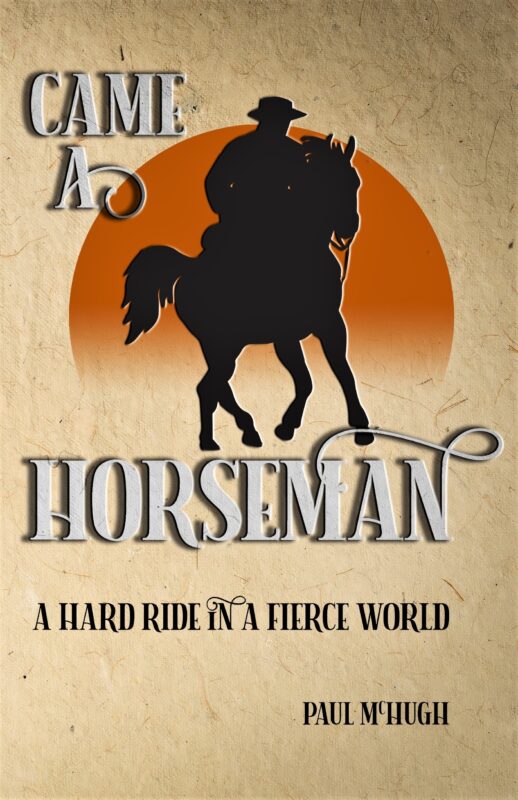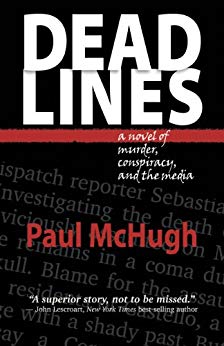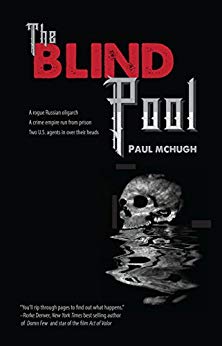Optimistic subtext in 1984
A literary pilgrimage can be rather fraught. One might journey to a famed writer’s studio or home, only to make a utterly unwished discovery – something that will diminish an author or his (her) work. But still worse, what if you gain zero insight – and the entire effort your trip required seems a waste?
A trek I made to George Orwell’s final writing retreat, on the wild isle of Jura, off Scotland’s west coast, fortunately resulted in no such debacle. Instead, I rambled into a scene of startling natural beauty, one providing some clues to messages of hope buried within Orwell’s dark and dystopic masterwork, 1984.

If you’ve not re-read 1984 recently, don’t worry! Present world news still invokes all its principal themes. Orwell envisioned a grim earth shrouded in three totalitarian governments, all perpetually at war against each other, with their benighted populations held in subjugation by a ceaseless flood of disinformation, comprehensive political oppression, as well as grinding poverty.
I’ve always been greatly impressed by Orwell – his biography, his general oeuvre, and 1984 in particular – ever since I first became familiar with them. So, my trip to Barnhill on the isle of Jura was indeed pilgrimage, as well as a sort of literary investigation. I’d sensed a deeply buried subtext in 1984, a suggestion the world it described was not quite as bleak as it initially seemed. I’d never been able to put my finger on how or why I felt this.
With our guides – descendants of the Fletcher family who had rented the country estate to Orwell – my wife and I rumbled in a Land Rover over the last miles of boggy track that led to the north end of Jura. Off in the distance, we saw a white stone farmhouse nestled in isolated splendor, in a lush valley that opens to a sweeping view of the blue sea between Jura and the Kintyre Peninsula. Soon, I would stand at a window in the centuries-old farmhouse, gazing out upon a vista that greeted Orwell’s eyes whenever he happened to glance up from his desk. It was captivating to think of him sitting in that exact spot, seven decades before.
 A long, winding road led Orwell to a room in this rustic house.
A long, winding road led Orwell to a room in this rustic house.
Of course, he was not George Orwell at the beginning. The boy was born Eric Arthur Blair, in 1903, in Motihari India. His father worked in the Opium Department of the British Raj, so young Eric had an early education in the abuse of power. England fought two wars to ensure that a great many Chinese customers would stay addicted and craving copious supplies of a “special product.” By the early 20th Century, Queen Victoria and her successor King Edward VII could’ve laid strong claim to fame as our globe’s leading drug lords – had they lusted for such a reputation.
Eric Blair attended college at Eton, but by 1922 was back East in Burma, as an officer with the Imperial Police. Finally, the writer in him – and the political theorist – began to stir. One of his first pieces, A Hanging, published in The Adelphi quarterly in 1931, told of the death of a poor Hindu – one of 70 hangings performed yearly to keep the Burmese in line. As that man went to his death, Blair saw him leap to one side to avoid wetting his feet in a puddle.
Until that moment, he wrote, “I had never realized what it means to destroy a healthy, conscious man … I saw the mystery, the unspeakable wrongness, of cutting life short when it is in full tide.”
He launched into a lifelong devotion to the causes of the working poor and underclasses. Books like Down and Out in Paris and London and The Road to Wigan Pier firmly established this egalitarian mission. And Homage to Catalonia revealed that he himself was unafraid to put more than a literary life on the line. That book recounts how, in 1936, he went to fight in Spain against Franco on behalf of the anarchists and socialists – and survived being struck in the throat by a fascist bullet.
By then, Eric Blair had split the difference on a writer’s quest for success and renown and his own instinctive suspicion of fame. He picked out the nomme de plume George Orwell, as a “good round English name” – that could keep the public from “working magic” on him by knowing his true identity. Amid the war years, he worked for the BBC, making him an astute analyst of propagandists on both sides. He and his first wife, Eileen O’Shaughnessy, adopted a child, Richard.

But 1945 bestowed upon Orwell both tragedy and triumph. Eileen died during surgery. However in that same year Animal Farm got published, and to rave reviews. This pithy novella combined Orwell’s sentiment for animals (he was an unabashed Beatrix Potter buff) with a stinging critique of political manipulation and mendacity. It brought him substantial acclaim, a robust income that he dubbed, “faery gold.” Renown made him flee off to Jura, into the bargain.
Then as now, Jura’s north was about the most remote area in all of the Hebrides. For Orwell, getting out there from London was an ordeal that involved linking a medley of trains, boats and taxis, then making a hike of five miles up a frail and boggy track to reach an old farmhouse he rented from the Fletchers. After moving out to Barnhill in 1946, Orwell used a motorbike to cover that last bit. It often broke down; locals would commonly see him on the side of the road, poking at its innards with a screwdriver.
In modern times, one can either take a ferry over from ports in Scotland or a commuter flight from Glasgow. In both cases, you should first make landfall on Islay, the island just to the south of Jura, which boasts a half-dozen towns, many lovely B&B inns, and – as an added incentive to visit – eight of Scotland’s top single-malt distilleries.
Islay also has car rental agencies near its tiny airfield. To get to Barnhill, drive your car north past Loch Finlaggan (seat of the ancient Lords of the Isles, back when the Hebrides were a separate kingdom, around 1400 A.D.) to the ferry terminal at Port Askaig, then cruise across the narrow strait to Jura.
Next you drive upon a long and winding single lane (oft shared with livestock), past the looming Paps of Jura – a pair of tall quartzite peaks. After nine miles, you come to the village of Craighouse, holding Jura’s sole hotel, single pub, solitary distillery

and only store. Twenty-one more miles brings you to the pavement’s end. Here, you can either park and hike out to Barnhill, or do what we did, hire relatives of the Fletcher family (Kate Johnson and her charming teenage daughter, Kirsty) to take us in a four-wheel drive SUV the rest of the way.
This last stretch makes you appreciate the isle of Jura as Scotland’s best wilderness – home to 5,000 red deer, but just 170 people. Our rig meandered over heather-clad hills (don’t call them “moors,” as that’s an English term) and rumbled over logs laid atop soggy peat bogs, to eventually deliver us to Barnhill’s splendid views.
Orwell didn’t trek out here just to achieve aesthetic distance from the big city bustle, but also to make highly productive use of his remaining time. In 1935, he had been diagnosed with a fibroid form of tuberculosis, a condition that progressively worsened. It wasn’t helped by long hours spent conjuring up bleak visions of 1984, as he puffed hand-rolled cigarettes of black shag tobacco.
The protagonist of 1984 is Winston Smith, age 39, a peon paid to distort reality in the oppressive government’s Ministry of Truth, dominated by now-famed slogans such as: War is Peace, Ignorance is Strength, and Freedom is Slavery. Smith tries to hide his infinitesimal spasms of rebellion from Thought Police, and takes scant comfort in oily gulps of Victory Gin. Then a rare dose of light comes via an unlikely romance with the feisty Julia. A core tragedy of the story is, after Julia and Winston have their hearts and wills crushed by Inner Party leader O’Brien, they wind up betraying each other.

Well then, where’s any ray of hope? A first bit of it appears in the sheer resilience of the “proles” – or proletariat. These commoners might reel about, their simple minds engorged on jingoism, tawdry pornography and paltry pop tunes. But, “The proles had stayed human. They had not become hardened inside. They had held onto the primitive emotions, which he himself (Smith) had to relearn by conscious effort.”
I believe that description somewhat reflects Orwell’s time spent amongst the workers in Spain. “I had dropped more or less by chance into the only community of any size in Western Europe where political consciousness and disbelief in capitalism were more normal than their opposites,” Orwell wrote, in Homage to Catalonia.
“One had been in a community where hope was more normal than apathy or cynicism, where the word ‘comrade’ stood for comradeship and not, as in most countries, for humbug. One had breathed the air of equality.”
There’s yet another optimistic clue in 1984’s appendix. Orwell dissects Newspeak, the language of oppression, designed to destroy the tools of independent thought. Interestingly Orwell describes Newspeak as a past tense phenomenon – which was surely no mistake for such a meticulous wordsmith. In this manner, he suggests that, by the time his manuscript is being written, Newspeak’s already faded into history.

However, by far the most durable hope in his book derives from that grand natural beauty he saw pour into his upstairs window at Barnhill, whenever he happened to glance up from his work-in-progress.
Winston Smith scores a fleeting escape from the Party in 1984 as Julia lures him to travel out beyond Paddington Station to a forest-fringed field. It’s the Golden Country, otherwise existing solely in Winston’s dreams. Here he finds sweet air, singing thrushes, flowering bluebells, and – however briefly – a bold and beautiful girl in his arms.
That idyll passes, and Winston and Julia indeed are destroyed by the Party. But in his fullest vision, genuine nature endures beyond the Party’s corrosive grasp, out beyond all those gray and grim urban streets. And there it remains ready for the delectation and nurture of other Winstons, other Julias, until, as Orwell implies, the Party and its system can be overthrown. Or at very least, succeeded by something else…
After he finished the novel, Orwell went in and out of hospitals in England (mostly in) until he passed away in 1950. He hoped to the very end he could make it back to his favorite refuge.

Barnhill on Jura is where a talented writer planted fruit trees he would not live to harvest and roses he would never see bloom. Yet here, he could look out upon tumbling, brushy fields, alive with birds, the sweeping arc of the rocky cove, and beyond, a blue, breeze-swept seascape. That brief refuge of the would-be hero Winston Smith was Orwell’s also – and could be ours.
By adroitly placing this spot of bright Yin in a large and muddy puddle of Yang, by providing a few bright counterpoints to contrast with his dark themes, the author managed to provide us with a lesson in literary art, as well as invoke a durable if hidden wellspring of hope for us to visit amid dark times.
Which is why, in our present era, when a living earth and our shared nature undergo determined and unfeeling assaults far beyond anything ever experienced before, preservation of their vibrant health for sake of our conjoined futures should be a grand, overarching value for us all.
“The birds sang, the proles sang, the Party did not sing,” Orwell wrote.







